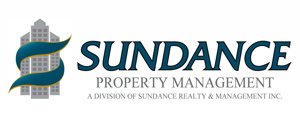
A commercial lease agreement may contain many different clauses that specify the rights and obligations of both parties.
Common clauses are:
-
- Rent: This clause states how much rent the tenant must pay, when it is due, how it is calculated, whether it is subject to increases or adjustments, and what happens if it is late or unpaid.
- Additional Rent: This clause states what other expenses are paid for by the tenant, often in the form of Common Area Costs (CAC). CAC costs are typically annually budgeted in advance and annually reconciled in arrears.
- Security deposit: This clause states how much security deposit the tenant must pay before moving in, how it is held by the landlord, whether it is refundable or non-refundable, and under what conditions it can be deducted or returned.
- Maintenance: This clause states who is responsible for maintaining and repairing the property, what standards of maintenance are required, how maintenance requests are handled, and who pays for the costs of maintenance.
- Utilities: This clause states who is responsible for paying for utilities such as water, electricity, gas, internet, etc., how they are metered or allocated, whether they are included in the rent or charged separately, and what happens if they are interrupted or discontinued.
- Insurance: This clause states what types of insurance both parties must carry for the property, such as property insurance, liability insurance, casualty insurance, etc., how much coverage they have to provide, who pays for the premiums, and what happens if there is a loss or damage.
- Duration: This clause states how long the lease lasts, when it starts and ends, whether it can be extended or renewed automatically or by mutual consent, whether it can be terminated early by either party or by certain events, and what penalties or consequences apply for early termination.
- Subleasing: This clause states whether the tenant can sublease all or part of the property to another party, under what conditions, how the rent and other obligations are shared or transferred, and whether the landlord must approve or consent to the sublease.
- Improvements: This clause states whether the tenant can make any improvements or alterations to the property, such as painting, installing fixtures, adding partitions, etc., what types of improvements are allowed or prohibited, who pays for the costs of improvements, who owns the improvements, and whether they have to be removed or restored at the end of the lease.
- Signage: This clause states whether the tenant can display any signs or advertisements on the property, such as logos, banners, posters, etc., what types of signs are allowed or prohibited, where they can be placed, how they have to be maintained, and whether they have to be removed at the end of the lease. There may be established sign options that may be included in the rent amount or may attract an additional fee.
- Parking: This clause states whether the tenant has access to any parking spaces on or near the property, how many spaces are allocated or available, how they are assigned or reserved, whether they are included in the rent or charged separately, and what rules or regulations apply to parking.
